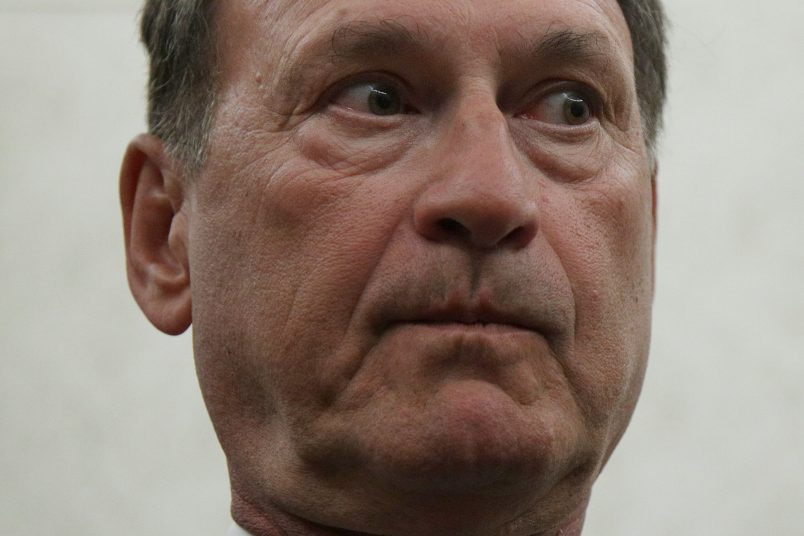The case had all the markings of a plant.
Two plaintiffs — Charles and Kathleen Moore — were challenging a foundational principle of the U.S. tax code, arguing that a provision in the Trump tax cuts causing a one-time tax on unrepatriated foreign profits was unconstitutional.
The case — Moore v. United States — had it all. It presented the court with an opportunity to redefine “income” for the purposes of the tax code, potentially undermining it; it served as a stand-in for the court to potentially block future wealth taxes or taxes on unrealized gains of the sort Democrats have discussed in recent years; the plaintiffs’ facts were likely bogus; conservative writers in the Wall Street Journal’s opinion pages heralded it as a potential breakthrough; it was brought by two longtime conservative movement attorneys.
But sitting atop all the typical muck was Justice Samuel Alito.
And, in a surprise move, Alito sided against the Moores in a decision released Thursday morning. He signed on to a concurrence written by Justice Amy Coney Barrett, leaving as light a public footprint on the case as possible.
It’s a real comedown for Alito on the Moore case.
He spent much of the past year telegraphing that he would cast his vote with the Moores. At oral arguments, he grilled Solicitor General Elizabeth Prelogar, referencing media coverage in one question: “One of your arguments that you press most strongly — and, certainly, it has resonated a lot in the coverage of this case — is that the adoption of the petitioners’ arguments would have far-reaching consequences.”
Alito spurred media coverage of the case through his own behavior. In July 2023, the Wall Street Journal’s Opinion section published an article based on an extensive interview with Alito, conducted by two people. One was an editor in charge of the paper’s op-ed pages; the other was David Rivkin, a lead attorney on the Moore case.
In the article, Rivkin and his co-author lavished praise on Alito, saying that he exhibited a “candor that is refreshing and can be startling.”
Alito gave two interviews to the authors in the immediate aftermath of reports from ProPublica that exposed lavish gifts that Justice Clarence Thomas received from billionaire Harlan Crow, and a luxury fishing vacation that Alito took with GOP megadonor Paul Singer. Alito used the same pages in the Wall Street Journal’s Opinion section to “prebut” the Singer story, writing under his own byline to attack ProPublica’s reporting.
But the interview with Rivkin — combined with the high, billionaire-related stakes of the Moore case — immediately raised serious questions over whether Alito had a conflict of interest. At the time, judicial ethics experts told TPM that though it looked unsavory, he likely did not.
The interview did succeed in sparking an exchange between Alito and Senate Democrats. They addressed their concerns not to Alito but to Chief Justice John Roberts. Alito instead replied with a four-page statement in which he informed senators that they failed to understand “the circumstances under which Supreme Court Justices must work.”
After all of that, Alito sided with the liberals and the bulk of the Court’s conservative wing against the Moores. Justices Clarence Thomas and Neil Gorsuch were the lone voices in favor of the Moores’ interpretation of the Constitution.
Alito did save some face. He signed onto an extremely narrow concurrence that, in part, cast blame on the Moores themselves for presenting a flawed argument, thereby preventing Alito and his co-concurrer, Barrett, from ruling in their favor.







He still should have recused himself.
Accepting a fawning interview from a litigant’s attorney looks really bad.
Convince me this isn’t a man with severe anger-management issues.
One has to wonder what his process was for walking away from a position he held all the way through the arguments. Smacks of the nonsense in Congress where they vote down a bill they wrote and sponsored.
The real prize is stopping the taxation of unrecognized income. This was a couple of cases too early and he has to do something to rehabilitate himself at least a little.
I don’t normally comment on someone’s appearance… but with that perpetual bitter persimmon visage, that head needs to stay low.